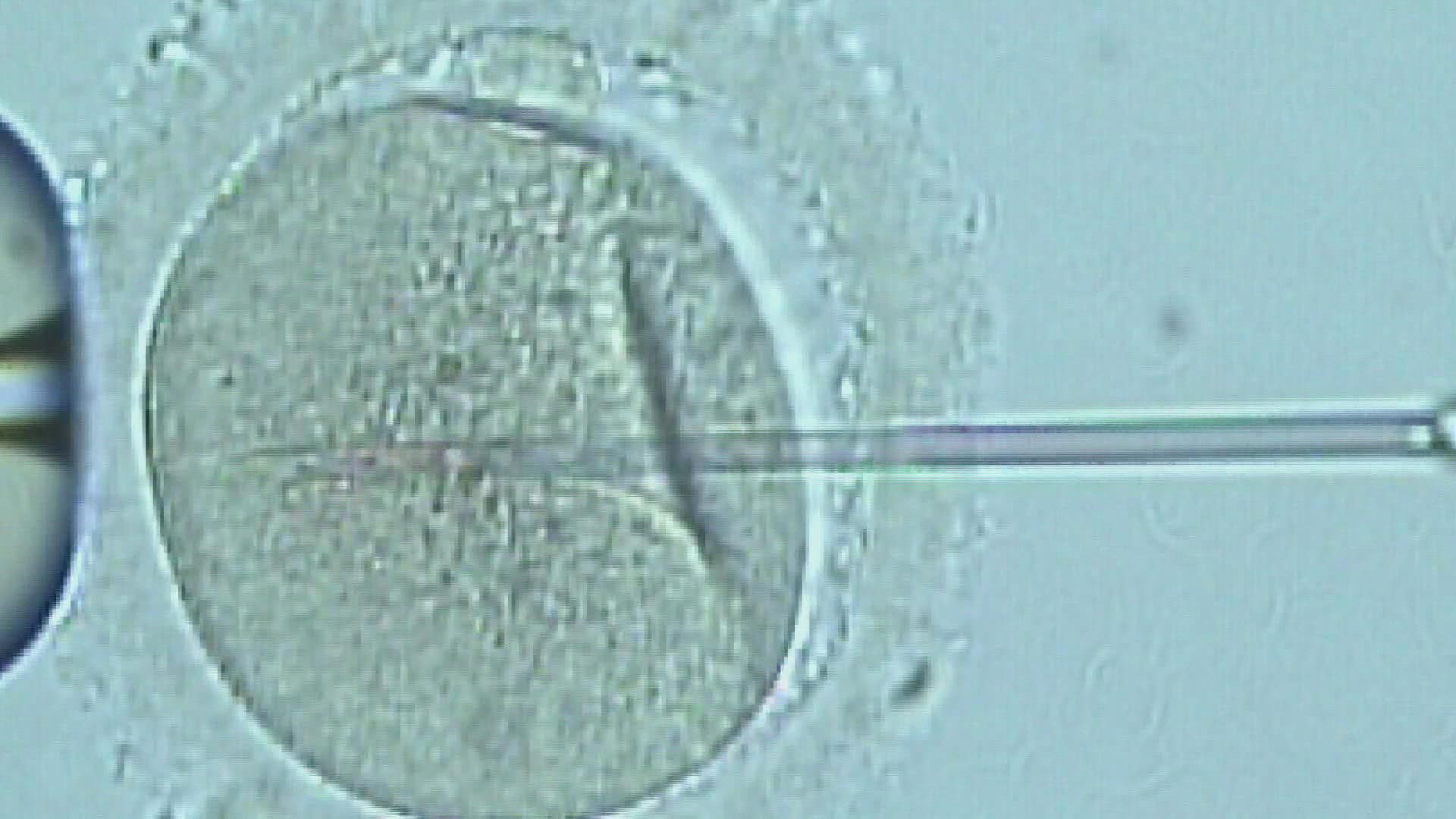KNOXVILLE, Tenn. — When the Supreme Court overturned the landmark Roe v. Wade decision which guaranteed abortion access, fury gripped several groups who advocated for women to be able to choose whether to be pregnant.
The ruling also sent a wave of confusion and concern in fertilization clinics across the U.S. It allows states to pass laws that could effectively assume life begins when an egg is fertilized by a sperm, forming a zygote and starting the process by which the cells divide. Since that zygote would be considered alive, fertilization clinics may need to follow new rules while handling them.
In Knoxville's only clinic offering in vitro fertilization, a doctor is trying to clear up some of the confusion.
"We tell patients upfront if you create these embryos, we're expecting you to come back and use them and in the meantime, you can pay to freeze them," said Dr. John David Gordon at Southeastern Fertility. "We're not going to throw them out."
The IVF process starts by collecting eggs from a woman and fertilizing them with sperm in a lab. The fertilized egg, or eggs, are then transferred into a uterus. Since the process could result in several fertilized eggs, the Roe v. Wade decision caused confusion about the law in clinics.
Dr. Gordon said the clinic is not legally required to keep its fertilized eggs in Tennessee as of July 6, but they choose to do so anyway because of their ethics.
The state's law effectively banning abortion is expected to go into effect in mid-August, 30 days after Attorney General Herbert Slatery III notifies the Tennessee Code Commission that the Supreme Court's judgment was issued. The official judgment is not exactly the same as the opinion.
The state's definition of an "unborn child" is available below.
“Unborn child” means an individual living member of the species, homo sapiens, throughout the entire embryonic and fetal stages of the unborn child from fertilization to full gestation and childbirth;
However, the state's trigger law focuses on abortion treatments and not IVF treatments, or similar fertilization treatments. It was not immediately clear if the law would be applied to IVF treatments.
"The founders never intended for us to have any of those rights," Attorney Mike Whalen said. "We got them because we insisted on them. If we don't fight for them they can take them away, as they have done."
The Roe v. Wade decision also threatened rights like same-sex marriage and interracial marriage, which were determined through the same kind of legal logic. Griswold v. Connecticut also determined couples have a right to contraception.
"If Thomas is suggesting that Griswold is a bad law, if the right to not get pregnant anymore is not a right anymore, then who says you have a right to get pregnant by an artificial means?" Whalen said.

